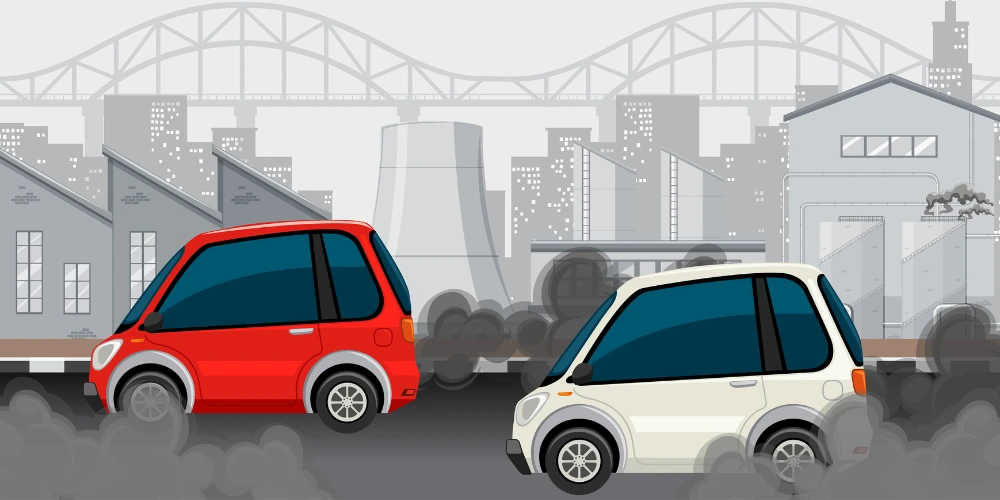Introduction: Winter is a specific season for vehicles, as external conditions that appear in the course of a cold season may influence various car problems that affect its performance. Fuel deliveries, battery failures, frozen fuel lines not to mention rust caused by the road salt these issues can make driving almost impossible and unsafe. It is important to be informed of the usual problems that may affect cars in the winter and how to avoid them in order to keep your car optimally prepared for the season. Whether it be with the tires that develop low PSI, the thick fluids, or strain with electrical systems, you also stand to benefit from preparing your car or truck for the winter season to avoid breakdowns that will require repairs. To be able to drive on winter roads safely, citing proper maintenance is highly important. In this blog, we will discuss all the Winter Car Issues and how to prevent them.
1. Battery Failure most Winter car Issues
Cold temperatures are harsh on car batteries, reducing their ability to hold a charge. When temperatures drop below freezing, starting your car can become more difficult, especially for older batteries. Battery failure is one of the most frequent winter car issues drivers face.
Prevention Tips:
- Test your battery before the winter season, particularly if it’s more than three years old.
- Clean battery terminals regularly to avoid corrosion, which can impede electrical flow.
- Park in a garage or sheltered area to protect the battery from extremely cold weather.
2. Tire Pressure Fluctuations Permanent Winter car Issues
Winter weather causes a drop in tire pressure as the cold air contracts. This can lead to underinflated tires, which negatively affects handling and increases the risk of tire damage.
Prevention Tips:
- Regularly check and adjust tire pressure to the manufacturer’s recommended levels.
- Consider using winter tires with better tread for improved traction on icy or snowy roads.
- Rotate tires frequently to ensure even wear, which extends their lifespan.
3. Thickening of Fluids
The cold weather affects various fluids in your vehicle, including engine oil, transmission fluid, and brake fluid. As temperatures drop, these fluids thicken, making it harder for them to flow and perform their function. This issue can lead to increased friction and wear on engine components.
Prevention Tips:
- Use winter-grade fluids designed for cold temperatures, including oil and transmission fluid.
- Let your car idle for a few minutes before driving to give fluids time to circulate properly.
- Check fluid levels regularly and top them off as needed.
4. Frozen Fuel Lines
Frozen fuel lines are common winter car problems, particularly when moisture enters the fuel system. This can block the flow of gasoline and prevent your car from starting.
Prevention Tips:
- Keep your fuel tank at least half full to minimize the risk of moisture build-up.
- Use fuel additives specifically designed to prevent fuel line freezing.
- Park your vehicle in a heated garage whenever possible to reduce the risk.
5. Wiper Blade Wear
The combination of snow, ice, and road salt can quickly degrade the effectiveness of windshield wipers. This can result in poor visibility, making driving dangerous during winter.
Prevention Tips:
- Replace your wiper blades before the winter season for optimal performance.
- Use winter-grade windshield washer fluid that can withstand freezing temperatures.
- Clear ice and snow from the windshield and wiper blades before driving.
6. Heating and Defroster Problems
Your vehicle’s heater and defroster are essential for comfort and safety during winter. If they malfunction, it can make driving uncomfortable and compromise visibility.
Prevention Tips:
- Have your heating and defroster system checked before winter starts.
- Replace the cabin air filter to ensure proper airflow.
- Maintain the coolant levels, as low levels can affect the heating system’s efficiency.
7. Electrical System Strain
The winter season puts a heavier load on the vehicle’s electrical system due to the increased use of heating, lights, and other electrical components. A struggling alternator may fail under the increased demand.
Prevention Tips:
- Get your alternator tested if it’s been showing signs of weakness.
- Limit non-essential electrical usage while driving to avoid overloading the system.
- Ensure your battery is fully charged, and replace it if needed.
8. Rust and Corrosion from Road Salt
Salt is commonly used to melt ice on roads, but it can cause significant rust and corrosion on a car’s undercarriage, brake lines, and body panels.
Prevention Tips:
- Wash your car regularly, paying special attention to the undercarriage, to remove salt build-up.
- Apply a wax coating before winter to protect your car’s paint and body.
- Use rust inhibitors to protect vulnerable areas from corrosion.
9. Frozen Doors and Locks
Cold weather can cause moisture to freeze in door locks or around the seals, making it difficult to access your vehicle.
Prevention Tips:
- Lubricate door seals and locks with silicone spray to prevent freezing.
- Keep a lock de-icer spray on hand in case of frozen locks.
- Park in a garage or use a car cover to keep moisture out.
Why Choose Vander Engines for Winter-Ready Car Parts?
If your car’s engine needs replacement to stay winter-ready, Vander Engines has you covered. We offer high-quality used engines and transmissions across the USA, including the Acura TL 04 engine, with a one-year full warranty and optional extended warranty for up to five years. Trust in Vander Engines for durability and top performance, no matter the season.




